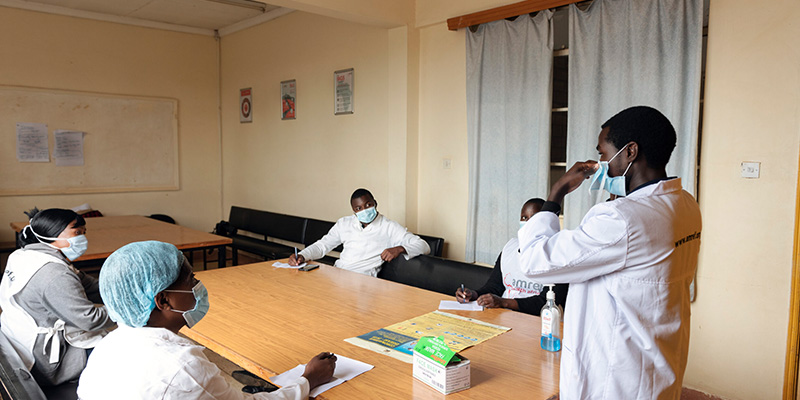
Building Health Worker Capacity on Home-Based Care and Isolation Using Digital Learning in Kenya
“The Kenya Ministry of Health launched the Home-Based Isolation and Care protocols, on 10th June 2020 as one of the case management strategies to combat the COVID-19 pandemic. This was because approximately 78% of persons who have contracted COVID-19 are asymptomatic or have mild symptoms which can be managed at home’’ Kenya Health Cabinet Secretary, Mutahi Kagwe.
As Kenya continues to experience an increase in the number of persons contracting COVID-19, there is increasing pressure on the available resources necessary to provide hospital-based care. Thus, it has become challenging to isolate all infected patients in hospital-based treatment facilities. In light of this, hospital care has been prioritized for persons infected with COVID-19 that are most vulnerable and likely to experience poor health outcomes.
Consequently, in efforts to implement programmes that support the optimal provision of treatment to persons who have contracted COVID-19, the Ministry of Health developed the home-based isolation strategy for asymptomatic and mildly symptomatic confirmed persons. The implementation of the home-based care strategy provides a clear linkage between the community and the health systems through the Community Health Volunteers (CHVs) under the supervision of Medical and Public Health officials. Along with the medical teams, the frontline CHVs play a crucial role in the provision of home-based care and isolation services.
Taking this into account, Amref Health Africa through its Institute of Capacity Development has partnered with the Ministry of Health and other funding partners to digitize the ‘Home Based Isolation and Care (HBIC) Guidelines for Patients with COVID-19.’ The digitized content will be used to build the capacity of Community Health Volunteers and Health Care Workers. The content is being delivered using Amref’s innovative training solutions Jibu and Leap that leverage both basic and smart device technologies. The mobile learning innovations have offline capabilities that ensure reach to the most vulnerable in the community and across remote areas with poor or no internet connectivity.
The digitized content is aligned to the Kenya Ministry of Health Home Based Isolation and Care Guidelines for Patients with COVID-19. The content is available in Swahili for CHVs. The Home-based Isolation and Care content is one in a series of topics tailored towards the training of CHVs and facility-based health care workers on COVID-19. It aims to build their capacity in: referral of patients if progression of symptoms is noted; use of home-based isolation monitoring tools; feasibility of home-based isolation and care spaces; procedures for home-based care and eligibility for home-based isolation and care.
The training is envisioned to reach over 50,000 CHVs and over 40,000 health care workers in Kenya. The knowledge transfer from those trained will be equally important in ensuring caregivers who are linked to CHVs and HCWs caring for patients with COVID-19 at home or in non-healthcare settings protect themselves and others while and when caring for people who have contracted COVID-19.



